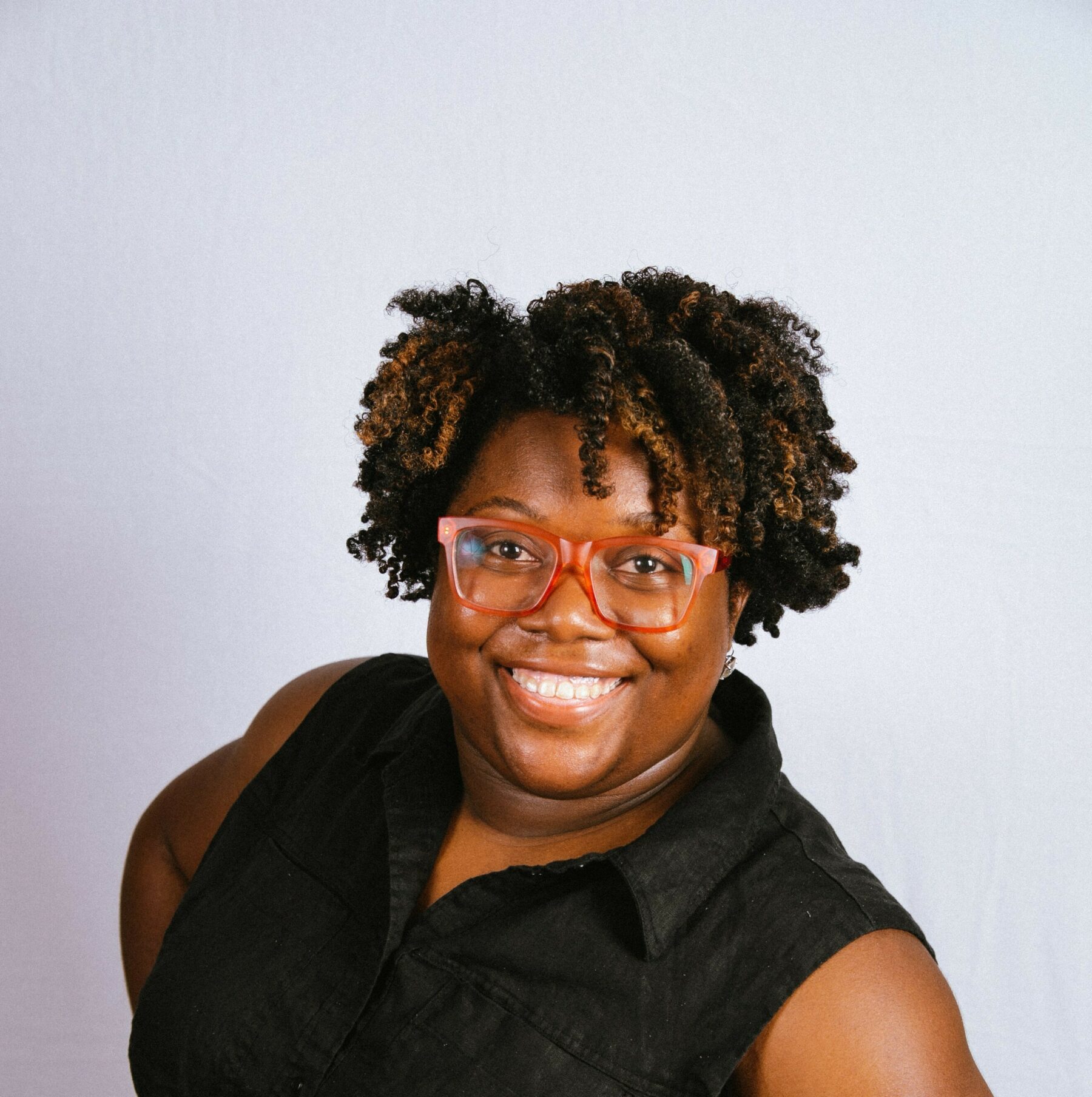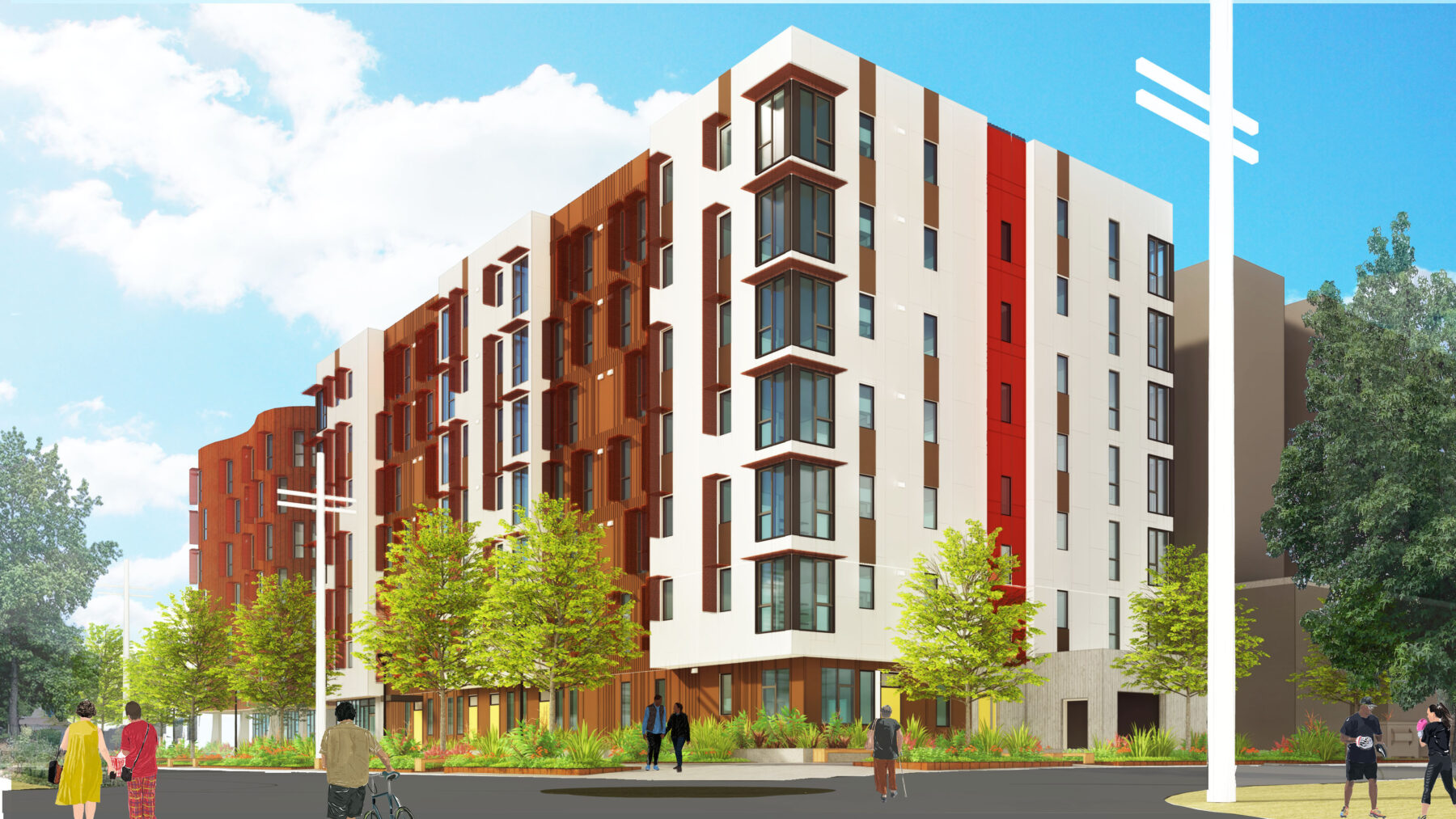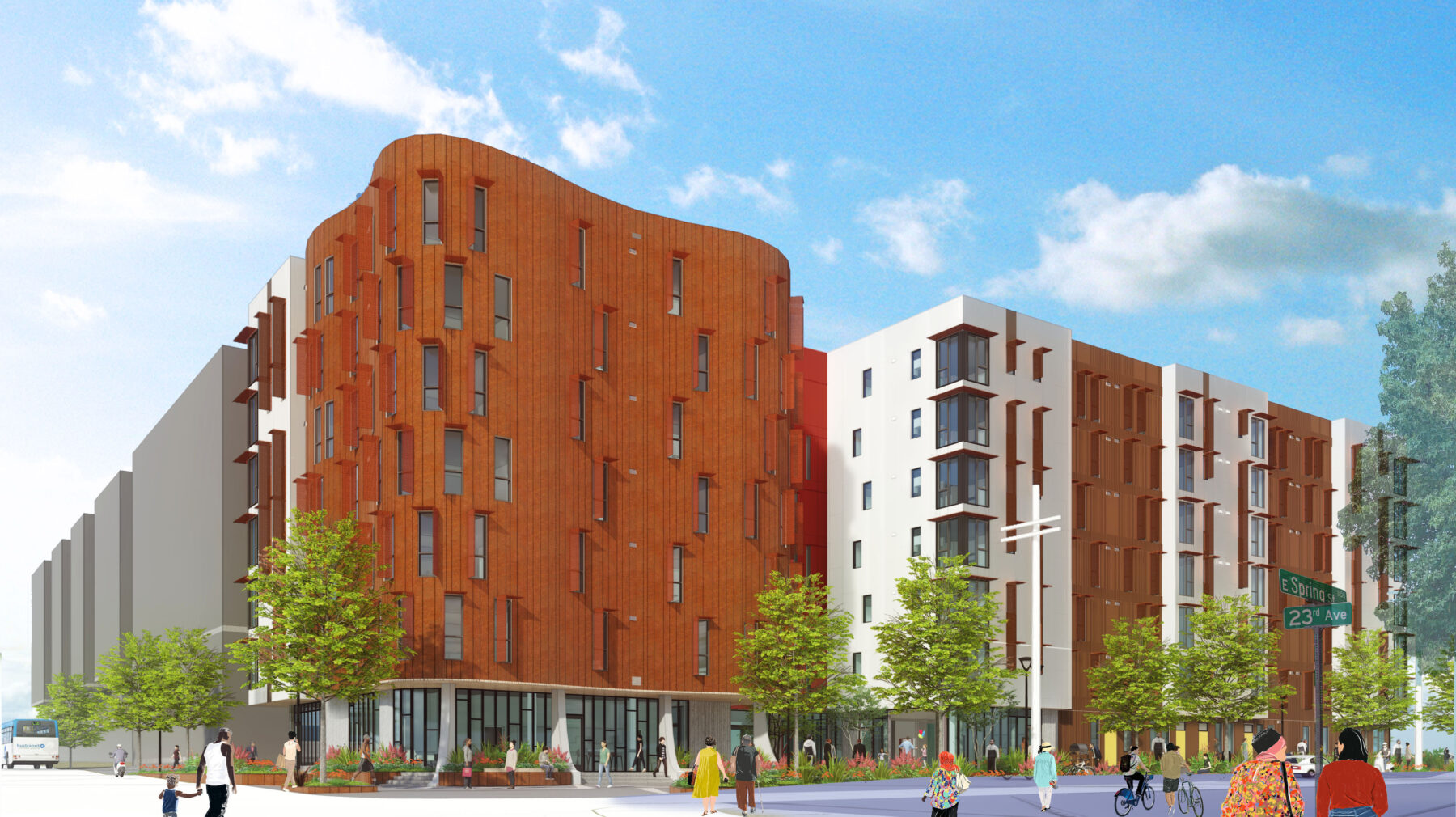Whitney Lewis Assoc. AIA

Designer II, GGLO
As the BSA celebrates the 2021 BSA Design Award winners, we are featuring profiles on individuals who served on the 2021 Design Award juries. The awards recognize remarkable achievements in architecture that serve as inspiration for practitioners, and elevate the potential for the positive impact that architecture has on our quality of life.
Degrees:
Bachelor of Art, Architecture at Smith College and MArch - NewSchool of Architecture + Design (San Diego, CA)
Tell us about your path to architecture and how it has impacted your career.
I started out with K-12 and TI—K-12 because I come from a family of teachers and loved the elementary school I went to as a child. Admittedly, it wasn't a great fit, but I was not deterred! I knew that after completing a cross-country move and driving across the state, apartment hunting was something I had a lot of practice with, and I was curious about the design decisions being made for unit layouts, window locations, et cetera. I leveraged that experience and found my passion. At the heart of it was pace: I really enjoyed the fast-paced multi-family market, but felt like something was missing, which was talking to the community. I found that in affordable housing. I love having frank conversations, listening to stories, and asking the community what they need so I can work and talk with them. If we’re getting specific about the impact, it’s how their stories, experiences and visions inform design and allow us to make something truly inspiring. We’ll never know or understand the complexities of a neighborhood or community as well as those who currently reside there. When we don’t take that into consideration, we do a disservice not only to the design we put forward but the community who will experience it.
What are your professional interests and what are you working on now?
Community engagement, affordable and workforce housing. I'm working on balance.
What interested you in becoming an awards juror?
I'd never been a juror before and wanted to have that experience. I also wanted to bring my perspective. I grew up in Southern New Jersey, went to school in Massachusetts (Smith College) but have only worked professionally on the West Coast (Washington state). This felt like coming home in a way.
What expertise are you excited to bring to this role?
I bring my full self, with a lens of community engagement and interaction.
What do you think is the most important aspect of a successful project?
Whether or not you'd do the project again with the same team, same parameters, nothing changed. In terms of community—whether it adds value and a sense of belonging.
What does “design excellence” mean to you?
Pushing the envelope of what the typical and functional solution would be while still being inspired by and including the community's voice and viewpoint.
Why do design awards matter?
Design awards have the ability to change the direction of and the conversation within the profession.

If you could create any Design Awards category—realistic or fantastic—what would it be?
The Least Value Engineered Project.
What do you see as the largest barrier to equity in the profession and solutions you'd like to see?
Mentorship and opportunities to participate in construction administration is the largest barrier of current practicing designers and architects of color. The adage "you can't be what you can't see" needs to be taken seriously. As much as we say the way to go about fixing the pipeline is by looking at K-12, we cannot place all of our eggs in the baskets of middle school, high school, or college students when we have an entire generation of current designers and architects, both people of color and white, who could thrive from the body of knowledge that white men and women possess. Insofar as a solution I would like to see: I’m calling on seasoned professionals, from Seattle to Boston, to ask emerging professionals what their passions are, to ask how you can help, to make introductions, and to share your networks. Remove the onerous barriers from emerging professionals to know how to navigate it all. Show them the way and provide guidance. It’s not enough to remember where you started and how you got there—remember who helped you, and return the favor. Form a ladder and leave breadcrumbs for those who will come after you. We are all a part of something bigger and this is an incredibly small profession.
If you could collaborate with anyone in the profession, who would it be and why?
I would love to collaborate with any client or firm that leverages community engagement and social justice to create powerful projects and redistributes their power to elevate the community and neighborhoods they're designing for in order to create radical change.

